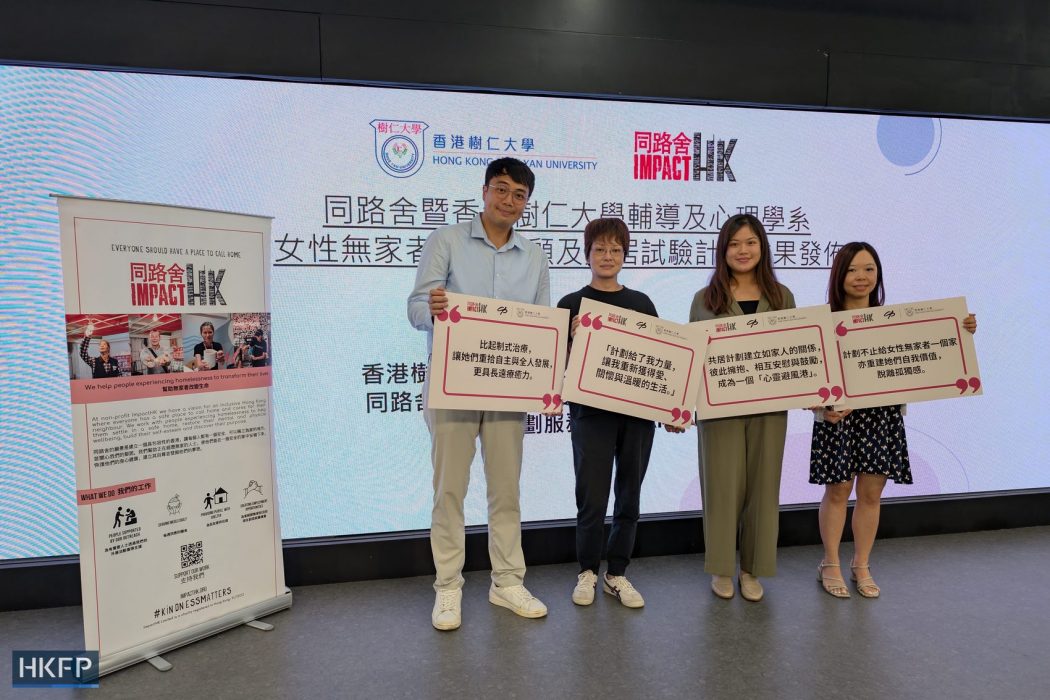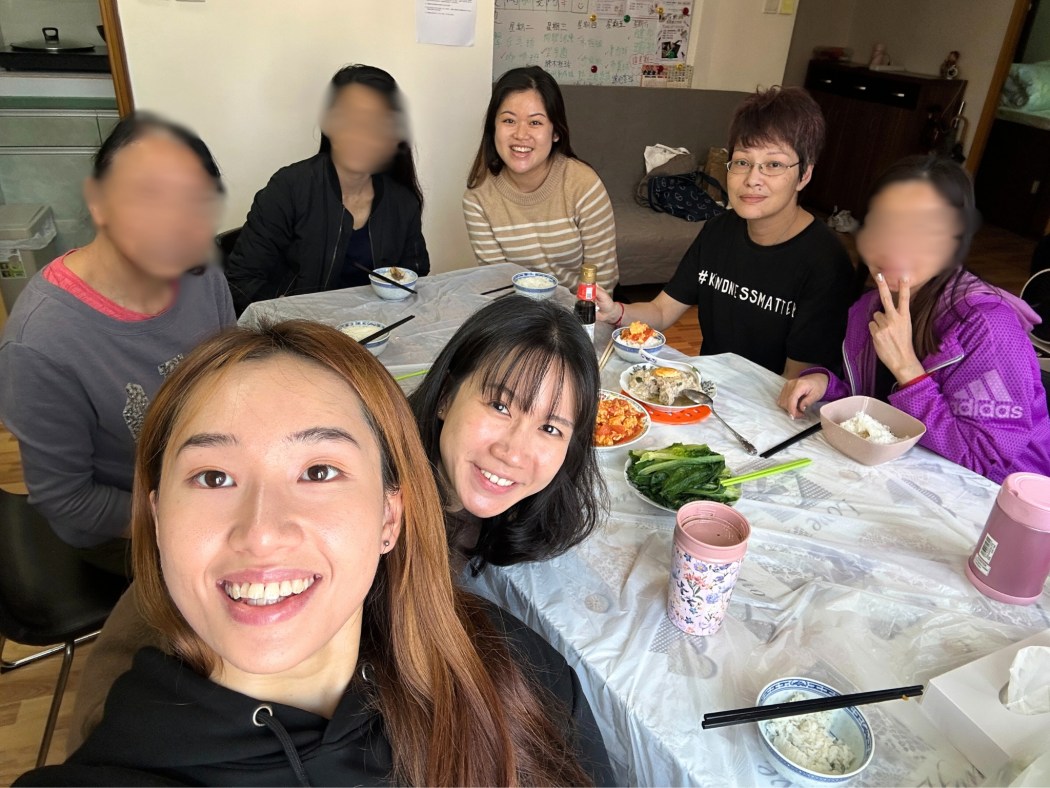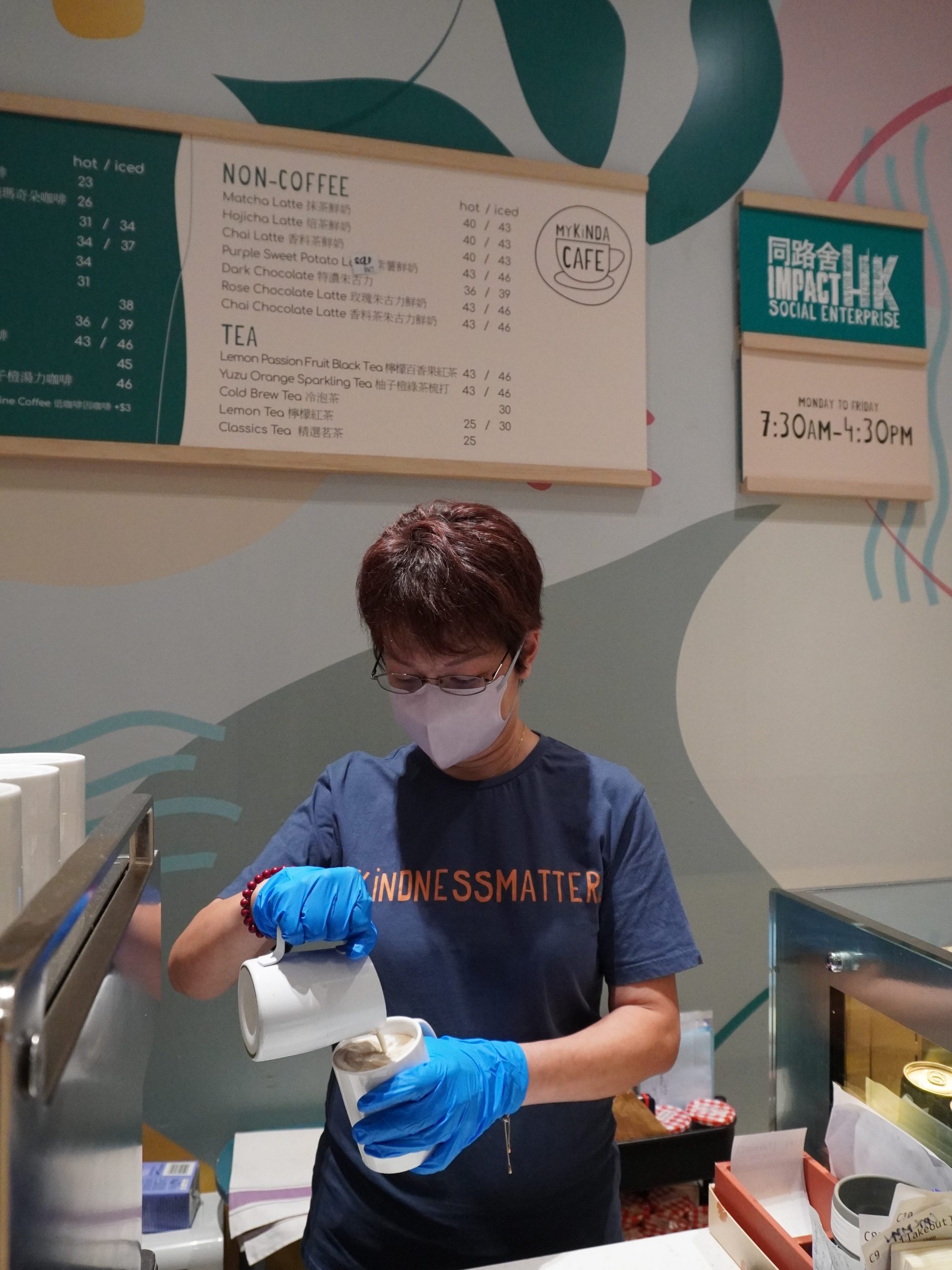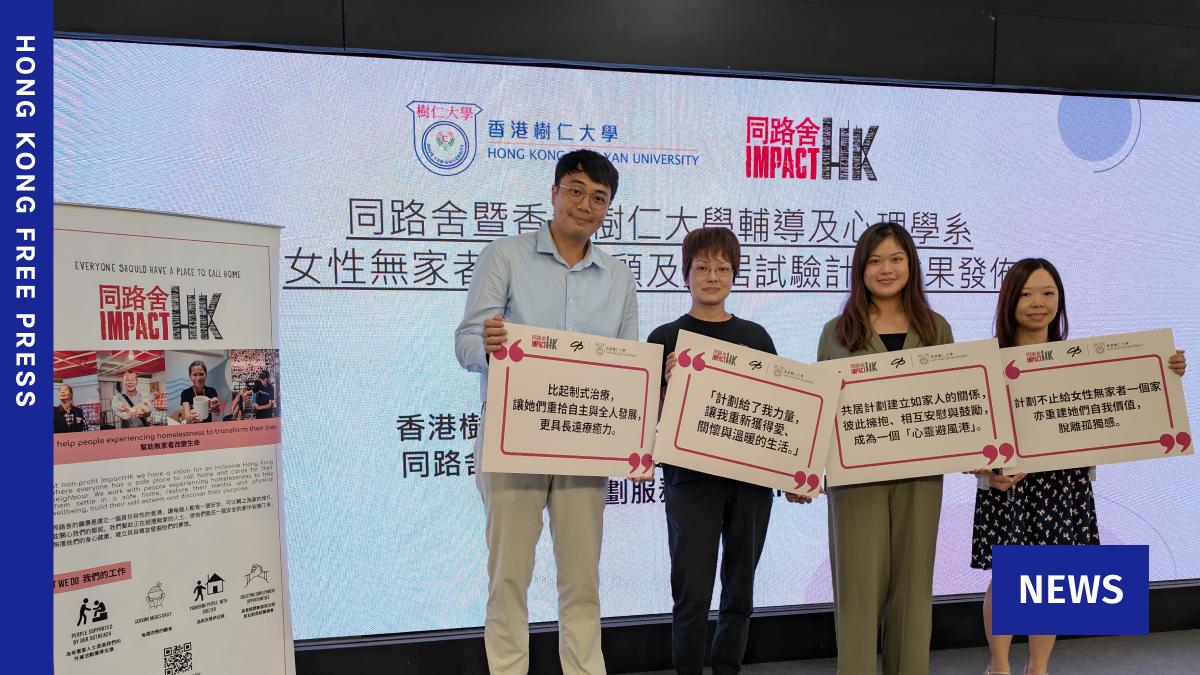A Hong Kong NGO has called on the authorities to introduce shared living for homeless people after its survey found that co-living arrangements helped improve the mental health of homeless women.
 Left to right: Deep Ng, ImpactHK’s head of programmes; Angel, a former homeless woman who lived in a co-living arrangement; Bess Lam, associate professor of counselling and psychology at Shue Yan University; and Momo Wong, project officer at Impact HK, attend the launching ceremony of the study on co-living for homeless women on September 22. 2025. Photo: James Lee/HKFP.
Left to right: Deep Ng, ImpactHK’s head of programmes; Angel, a former homeless woman who lived in a co-living arrangement; Bess Lam, associate professor of counselling and psychology at Shue Yan University; and Momo Wong, project officer at Impact HK, attend the launching ceremony of the study on co-living for homeless women on September 22. 2025. Photo: James Lee/HKFP.
A study conducted by NGO ImpactHK and Shue Yan University, launched on Monday, found that stress levels and post-traumatic stress symptoms experienced by 10 women who took part in a co-living arrangement run by the charity were reduced by more than half after the programme.
The women’s post-traumatic stress symptoms went from an average of 21.7 points down to 10.4 points on an 80-point scale, and stress levels decreased from 14 points to 5.4, over the course of a year, according to results from the study.
According to a mid-year review, depression symptoms fell from 11 points down to 6.3, and feelings of loneliness dropped from 26.5 down to 20.5, also on an 80-point scale.
 Angel, who took part in ImpactHK’s co-living programme, helps prepare a meal. Photo: ImpactHK.
Angel, who took part in ImpactHK’s co-living programme, helps prepare a meal. Photo: ImpactHK.
The baseline ratings indicated that the women had experienced moderate levels of depression, said Bess Lam, associate professor of counselling and psychology at the university.
Co-living is distinct from traditional homeless shelter services, as it empowers the homeless to enhance their interpersonal, conflict resolution, and daily living skills through mutual support and collaborative discussions about household management, the NGO said.
‘Living is healing’
According to the study’s findings, ratings for positive indicators increased noticeably following a year in the co-living arrangement.
On a 60-point scale, feelings of self-compassion went up from 31 to 33.8 points, while life satisfaction increased from 15.3 to 22.4.
 Former homeless women in a co-living apartment share a meal with ImpactHK programme officers. Photo: ImpactHK.
Former homeless women in a co-living apartment share a meal with ImpactHK programme officers. Photo: ImpactHK.
Those changes in the women’s mental states demonstrate the importance of full-person development for vulnerable communities and provide a sustainable model for rehabilitation, ImpactHK said.
“The research results show that having a home is important, but also that rebuilding the psychological well-being and self-worth of homeless women is crucial,” said the university’s Lam.
Angel was one of the women who took part in the co-living arrangement after having spent six months on the streets some four years ago. ImpactHK reached out to her days after she began sleeping in a subway tunnel following an argument with her mother.
 Angel, who took part in ImpactHK’s co-living programme, works at the NGO’s cafe. Photo: ImpactHK.
Angel, who took part in ImpactHK’s co-living programme, works at the NGO’s cafe. Photo: ImpactHK.
Angel, who is now in her 50s, slept rough for half a year until she joined ImpactHK’s co-living arrangement.
She lived with four other women, including a programme officer at the charity, in a 600-square-foot flat with a living room and a kitchen, sharing housework and cooking among themselves.
The co-living arrangement “allowed me to meet so many people from different backgrounds,” said Angel. “It showed me that even if I fell, I can still get back up.”
Now living on her own in a subsidised transitional flat, she devotes her time to working at a cafe run by the charity in Tai Kok Tsui.
“We believe that ‘living is healing,’” said ImpactHK’s head of programmes, Deep Ng. “It’s all about autonomy and empowering them to take charge of how they want to live. It’s as if to say, ‘this is your home.’”
Noting that welfare authorities do not have a dedicated homelessness policy, the NGO urged the government – or other organisations – to introduce co-living arrangements and facilities and set a dedicated framework that meets the needs of women who are sleeping rough in the city.
It also called on the authorities to develop policies that prioritise the rights and mental health needs of homeless women, ensuring comprehensive and long-term support.
Support HKFP | Policies & Ethics | Error/typo? | Contact Us | Newsletter | Transparency & Annual Report | Apps
Safeguard press freedom; keep HKFP free for all readers by supporting our team





